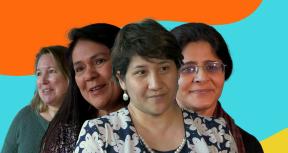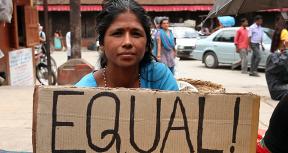The World Bank Group’s Gender Strategy (fiscal year 2016–23) presents gender equality as integral to smart development policy and posits that successful implementation of the strategy will help achieve the Bank Group’s twin goals and the Sustainable Development Goals. The strategy focuses on four objectives: human endowments, jobs, asset control and ownership, and voice and agency. To implement the strategy, the World Bank and International Finance Corporation (IFC) established a new methodology and targets for measuring progress via gender tags for World Bank operations and gender flags for IFC advisory and investment services. At the midpoint in the eight-year strategic cycle, this review provides a rapid assessment of the implementation of the strategy in the World Bank and IFC.
The purpose of the review is to provide evidence and reveal opportunities to maximize organizational efforts over the final four years of implementation. It reflects on what is working well and less well to support continuous monitoring and learning in the World Bank and IFC in terms of strategy implementation. The review identified the connections and coordination among four essential institutional elements for an enhanced country-driven approach—knowledge management, staff designated to support work on gender, the IFC Gender Business Group and World Bank Gender Group, and monitoring and evaluation—and identifies four opportunities to enhance implementation.






